NAM: Clarify 30C Tax Credit Rulemaking

The “30C” tax credit has the potential to spur manufacturing investment, but the Internal Revenue Service and Treasury Department must first clarify some of their proposed rules regarding it, the NAM said this week.
What’s going on: In September, the IRS and Treasury Department jointly proposed regulations regarding Section 30C of the U.S. tax code’s Alternative Fuel Vehicle Refueling Property Tax Credit, which was changed and expanded by the Inflation Reduction Act of 2022.
- “A key purpose of the energy provisions of the IRA was to reduce greenhouse gas emissions and spur manufacturing investments in low emissions and renewable energy sectors,” NAM Vice President of Domestic Policy Chris Phalen told the IRS on Monday.
- “Manufacturers make vehicles that use alternative fueling stations, many of our members produce the components … that go into these stations and manufacturers will construct and operate these refueling properties. These companies require certainty and specificity to make final investment decisions.”
What must be done: To that end, the NAM told the agencies the following changes should be made to the proposed regulations for the 30C tax credit:
- Extend the allowed transition period for organizations to update “census tract designations to reflect population data in the years 2016–2020,” as the draft rulemaking mandates that those wishing to take advantage of the 30C credit “must place the property into service within a specific census tract designation.”
- Clarify whether the location of the refueling infrastructure “would need to be made available to the public to qualify for the 30C tax credit.”
- Provide tax credit “eligibility for certain property directly attributable to the operation of alternative fuel vehicle refueling property, such as electrical panels and conduit/wiring, and ask that the agency also consider related construction and other project costs for eligibility.”
Preserve Tax Reform’s Pro-Growth International Tax System

The international tax system put in place by 2017 tax reform bolsters American competitiveness and supports manufacturing in the U.S.—and that’s why its provisions must be preserved, according to a new policy explainer, part of the NAM’s Manufacturing Wins campaign.
The background: Before passage of the Tax Cuts and Jobs Act, the U.S. tax code made it more costly and less efficient to invest in the U.S. Corporate profits were taxed at the 35% corporate income tax rate when repatriated to the U.S., forcing businesses to keep revenues abroad.
- Tax reform instituted a new, pro-growth international tax regime that incentivizes companies to locate their operations, intellectual property and profits here in the U.S.
The specifics: Tax reform’s international tax provisions include the following:
- A 21% corporate tax rate: Tax reform reduced the corporate rate from 35% to 21%, making “the U.S. a more attractive home for manufacturing investment.”
- The Foreign-Derived Intangible Income deduction: This deduction “reduces taxes for companies that locate job-creating, export-producing intellectual property in the U.S.”
- The Global Intangible Low-Taxed Income regime: The GILTI regime imposes a U.S. minimum tax on income earned abroad in low-tax jurisdictions.
- The Base Erosion and Anti-Abuse Tax: The BEAT applies to certain payments that shift companies’ profits abroad.
Why it’s important: Globally engaged manufacturers face the possibility of significant tax increases at the end of 2025 as key international tax provisions are scheduled to change.
- The FDII deduction will decrease, while the effective GILTI and BEAT tax rates will both increase—upsetting the balance inherent in the TCJA international tax structure and thus making it more costly and difficult for globally engaged companies to operate here in the U.S.
What’s next: In addition to maintaining or reducing the 21% corporate tax rate, the NAM is calling on Congress to prevent the FDII decrease and the GILTI and BEAT tax increases on manufacturers whose success bolsters America’s competitiveness on the world stage.
The last word: “Congress must sustain tax reform’s international tax system, including the lower corporate tax rate, in order to enhance America’s competitiveness and support manufacturers’ efforts to create jobs and grow investment here in the United States,” said NAM Vice President of Domestic Policy Charles Crain.
NAM Sees Strength for Manufacturing as Washington Transitions
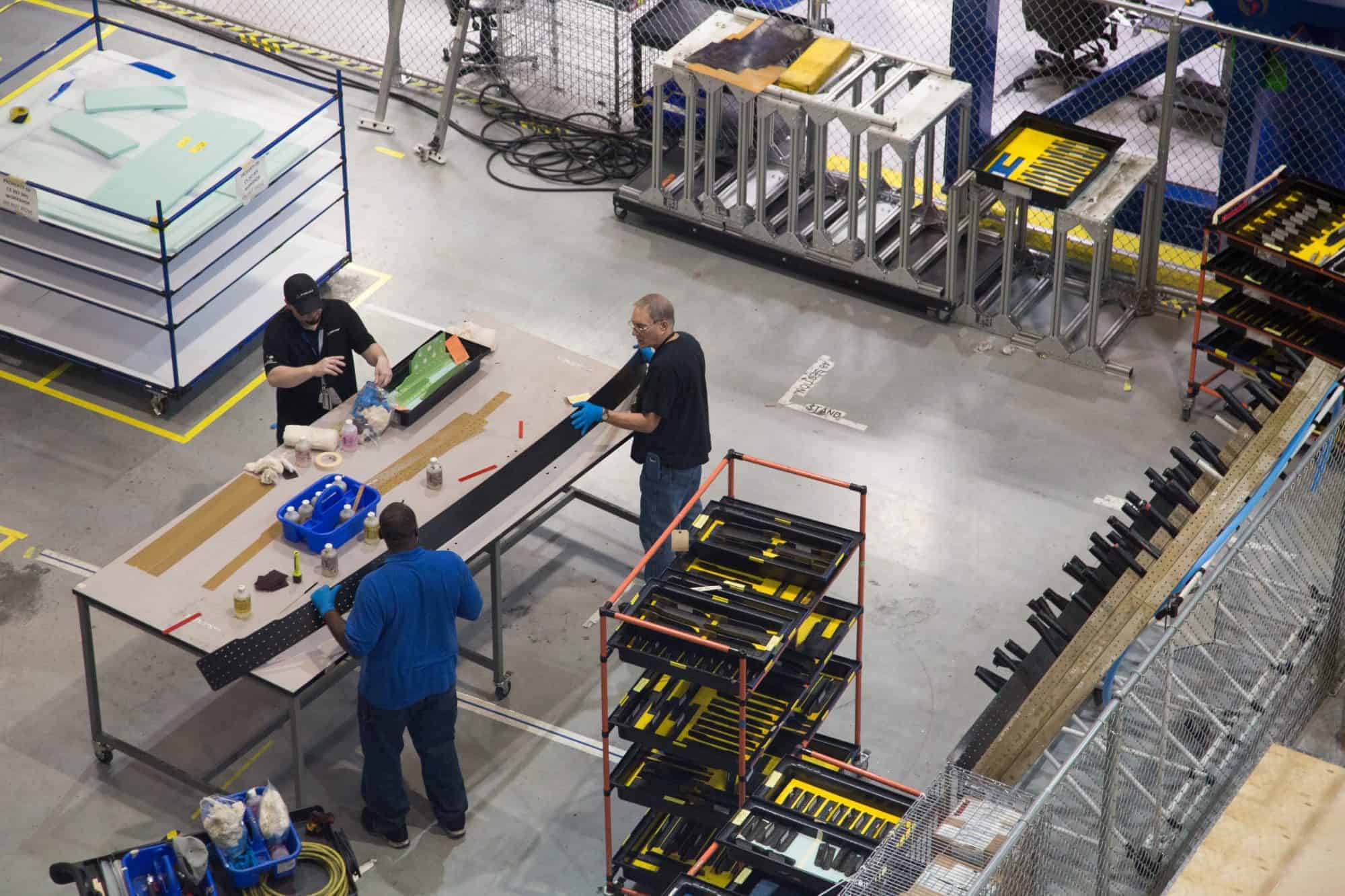
With a new administration and Congress on the horizon, the NAM is signaling confidence in its ability to secure wins for manufacturing in the United States, highlighting both recent achievements and policy priorities moving forward.
“The NAM has always focused on what’s best for manufacturing in America, and our track record speaks to that,” said NAM Executive Vice President Erin Streeter. “Our approach is consistent because we know what it takes to get results.”
What we’ve delivered: With post-partisan engagement, the NAM has achieved historic policy wins across both recent administrations, including:
- Tax reform: The NAM’s advocacy helped shape the 2017 tax cuts, driving billions in savings that manufacturers have reinvested in jobs, innovation and facility upgrades.
- Regulatory certainty: The NAM has played a pivotal role in streamlining regulations, reducing compliance costs under the Trump administration and working to slow regulatory expansion during the Biden years.
- United States-Mexico-Canada Agreement: The NAM was a key advocate for USMCA, safeguarding U.S. jobs by ensuring fairer competition and greater access to key markets.
- Energy advances: NAM-backed policies have supported growth in domestic energy production, creating a more stable energy market.
- Infrastructure and CHIPS Act: The NAM was instrumental in securing the historic Bipartisan Infrastructure Law and the CHIPS and Science Act, both critical for modernizing the economy, bolstering national security and ensuring a reliable semiconductor supply.
“These wins demonstrate what we bring to the table,” Streeter said. “By staying focused on manufacturing’s priorities, we can partner effectively with the new administration and Congress to create and protect jobs and strengthen communities.”
Looking ahead: The NAM’s focus on core issues remains critical for keeping the sector competitive and resilient, Streeter continued. These issues include:
- Securing tax reform: The NAM’s “Manufacturing Wins” campaign aims to lock in key 2017 tax provisions that manufacturers rely on for stability and growth. “Tax reform has been a game-changer,” said Streeter. “Protecting that progress means more jobs and manufacturing-led growth across the country.”
- Regulatory certainty: The NAM is advocating for balanced regulations that support competitiveness. “Manufacturers thrive with clear, fair rules,” Streeter noted. “We’re making sure Washington understands the importance of regulatory stability—and the danger of excessive regulation.”
- Energy security: The NAM is working to secure reliable, affordable energy while fostering innovation in sustainability. “Energy security and grid reliability are top of mind for every manufacturer,” Streeter added. “We’re ensuring manufacturers can continue to innovate, grow and drive America forward.”
Bottom line: The NAM remains focused on advocating for policies that strengthen U.S. manufacturing. “Our success is built on trust and influence,” Streeter said. “Our members know the NAM is a constant force, with the relationships and expertise to deliver, regardless of political changes.”
In related news, President-elect Trump has named campaign manager Susie Wiles as White House chief of staff (Reuters, subscription), a choice NAM President and CEO Jay Timmons called “a powerful move to bring bold, results-driven leadership to the White House from day one.”
Trump’s First Term: A Historic Era for Manufacturing
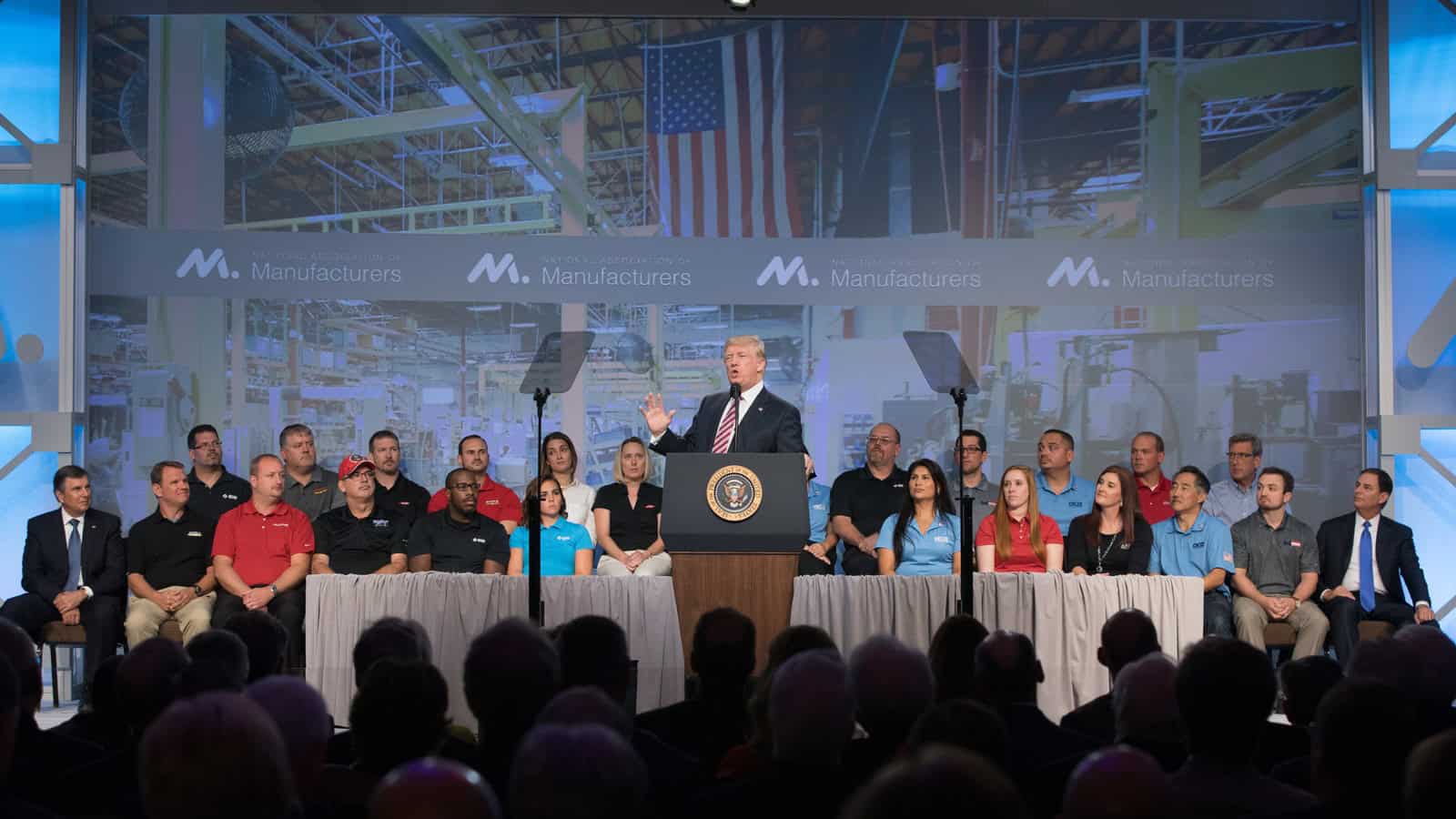
President Trump’s first term delivered significant wins for manufacturing in the United States, from tax reform to a regulatory overhaul to new trade agreements. Now, as the president-elect gears up for a second term, we look back on the transformational achievements and the NAM’s role in shaping policies that revitalized manufacturing in the U.S.
“Rocket fuel”: President Trump took the stage at the NAM’s board meeting in September 2017, where he laid out his tax reform agenda, describing it as “rocket fuel” for the U.S. economy. This was no ordinary policy effort—it was a generational initiative that would reshape industry in the United States.
- The impact: The Tax Cuts and Jobs Act delivered a 21% corporate tax rate while instituting full and immediate expensing for capital investments, improved interest deductibility and provided other critical provisions for small manufacturers and the entire industry.
- As a result, manufacturers nationwide reported record optimism, expanded operations, hired more workers, increased wages and benefits and reinvested in their communities.
Regulatory certainty: Recognizing that excessive regulations were stifling growth, the Trump White House asked then-NAM Board Chair David Farr in the first half of 2017 to compile a report from NAM members on the regulations causing them the most harm. The NAM team worked closely with administration leaders to address these pain points, compiling a list of 158 regulations for reform, with an emphasis on regulatory predictability and simplicity.
- The impact: By the close of Trump’s first term, more than 90% of the NAM’s regulatory recommendations were addressed or nearing completion. This unprecedented relief helped manufacturers focus on growth, product innovation and expansion.
Stronger deals: The Trump administration kept manufacturers and the NAM at the table, forging a trilateral deal to strengthen manufacturing’s competitive edge.
- The impact: Thanks in large part to manufacturers’ persistent advocacy work with lawmakers on Capitol Hill, the United States–Mexico–Canada Agreement was signed into law, restoring trade certainty for the North American markets that support millions of manufacturing jobs in the United States.
- While the NAM continues to pressure Mexico and Canada to live up to their commitments, the agreement strengthened businesses in the U.S. by ensuring updated trade standards, bolstering protections for intellectual property and digital trade and enhancing cooperation among North American partners.
Energy independence: Under President Trump’s administration, the NAM advanced an all-of-the-above energy strategy that included expanded domestic energy production and efficiency efforts. The NAM partnered with the Environmental Protection Agency and the Department of Energy to promote practices that both protected the environment and advanced innovation for a sustainable future.
- The impact: As former Trump EPA Administrator Andrew Wheeler pointed out recently at NAM headquarters in Washington, the rollback of restrictive energy regulations and the decision to maintain workable standards empowered manufacturers to increase domestic energy production, which reduced costs and bolstered energy independence.
- This balanced approach allowed manufacturers to meet consumer demand, strengthen supply chains and make greater contributions to America’s economy and environmental stewardship.
Safeguarding American IP: Confronting unfair trade practices with China was another priority. In 2019, the NAM worked closely with the White House to secure the “phase one” trade deal with China, which was designed to strengthen protections for American IP and help level the playing field for manufacturers in the U.S.
- The impact: The agreement established enforceable trade standards with China, aiming to protect U.S. innovations and support American jobs.
Operation Warp Speed: As the COVID-19 pandemic unfolded, manufacturers were at the forefront of the response. The NAM and its members partnered with the Trump administration to secure essential operations activity to implement Operation Warp Speed, a public–private partnership that fast-tracked the development, manufacturing and distribution of vaccines.
- The impact: Operation Warp Speed delivered lifesaving vaccines in record time, saving millions of lives, ending the global pandemic and demonstrating the unequaled capacity of American innovation and manufacturing.
Dignity of work: To address the skills gap, the Trump White House created the American Workforce Policy Advisory Board, naming NAM President and CEO Jay Timmons a member. Alongside other manufacturing leaders, and with the support of the NAM’s workforce development and education affiliate, the Manufacturing Institute, Timmons worked with the administration to elevate manufacturing careers and expand access to training. In a key event, the NAM and Ivanka Trump, who received the Alexander Hamilton Award for her leadership in championing manufacturing, launched the Creators Wanted Tour in 2020 to inspire the next generation of manufacturers and close the skills gap.
- The impact: Creators Wanted became the largest industry campaign to build excitement about modern manufacturing careers, highlighting the industry’s high-tech, well-paying jobs and reinforcing its role in supporting the American Dream. The campaign helped shift parents’ positive perception of manufacturing careers from 27% to 40% and signed up more than 1.5 million students and career mentors to learn more about manufacturing careers.
Bottom line: “President Trump’s first term reshaped what’s possible for manufacturing in the United States,” said NAM Executive Vice President Erin Streeter. “As he prepares to lead again, manufacturers have the benefit of building on a strong foundation with the president-elect as well as the purpose and pride that the industry brings out in lawmakers on both sides of the aisle.”
Manufacturing Tax Team Tours Michigan
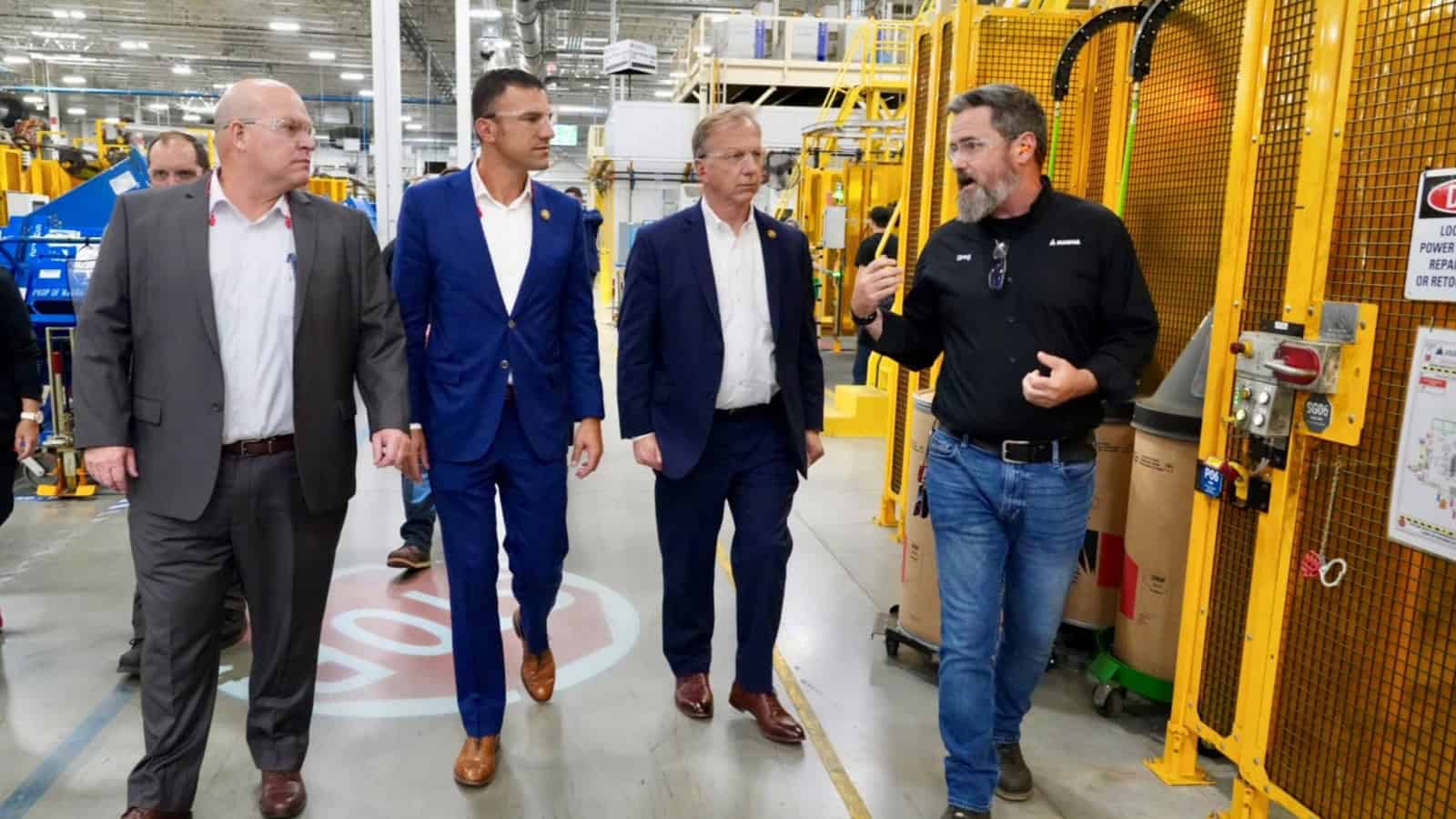
Rep. Vern Buchanan (R-FL-16), chairman of the House Ways and Means Committee’s American Manufacturing Tax Team, led a group of House GOP members on a tour of manufacturing facilities in Michigan last month. The tour highlighted the importance of extending critical tax provisions set to expire in 2025.
Reps. Mike Collins (R-GA-10), Kevin Hern (R-OK-1), Victoria Spartz (R-IN-5) and Rudy Yakym (R-IN-2) joined Rep. Buchanan for a series of discussions focused on ensuring that the tax code enables manufacturers in the U.S. to remain globally competitive.
Touring DENSO: The representatives first visited DENSO’s facility in Southfield, where executives outlined the crucial role research and development plays in the automotive sector. However, the expiration of immediate R&D expensing in 2022 has threatened to hamstring their capacity to innovate, DENSO’s leaders said.
- Buchanan emphasized the urgency of reinstating immediate R&D expensing to keep manufacturers in the U.S. competitive. “We cannot allow our manufacturers to fall behind in innovation because of uncompetitive tax policies,” he said.
- “Restoring R&D expensing will allow companies like DENSO to continue investing in their businesses, employees and local communities.”
Lunch with manufacturers: Next, the NAM hosted a luncheon roundtable for the representatives and local manufacturers, where participants discussed the need to preserve pro-growth tax policies.
- NAM Executive Vice President Erin Streeter opened the discussion by highlighting how the 2017 Tax Cuts and Jobs Act has been “rocket fuel” for the manufacturing industry. “Tax reform led to historic job creation and wage growth for manufacturers of all sizes,” Streeter said. “Congress must protect manufacturers from devastating tax increases by preserving tax reform in its entirety.”
- Several manufacturers voiced concerns about threats to key tax provisions, including the pass-through deduction and the 21% corporate tax rate.
- “If these tax policies are allowed to expire, we’ll be forced to cut back on investments that drive growth,” one local manufacturer said.
Visiting Magna International: Last, the representatives toured Magna International’s facility in St. Clair, where the group got to see the production of the company’s cutting-edge autonomous vehicle technology.
- During the tour, Magna’s leaders noted that the expiration of pro-growth tax provisions could hamper future investments in these critical technologies.
Momentum: These events followed a series of facility visits from key congressional leaders over the August congressional recess, hosted by the NAM and spotlighting the top priorities of American manufacturers.
- “These discussions are shaping the future of manufacturing right here on the shop floor,” said NAM Managing Vice President of Government Relations Stef Webb. “From R&D expensing and accelerated depreciation to the pass-through deduction and the corporate tax rate, these are the policies manufacturers need to stay competitive in the global market.”
The last word: Following the day’s events, Rep. Buchanan reaffirmed the Manufacturing Tax Team’s commitment to ensuring a competitive tax environment.
- “We must fight to preserve the tax policies that have allowed American manufacturing to thrive,” Rep. Buchanan said. “The stakes are high, and Congress must act before it’s too late.”
If you want to add your voice to the fight for tax reform, or host legislators for a facility visit, check out the NAM’s “Manufacturing Wins” campaign.
Q&A: Sen. Hassan on Immediate R&D Expensing
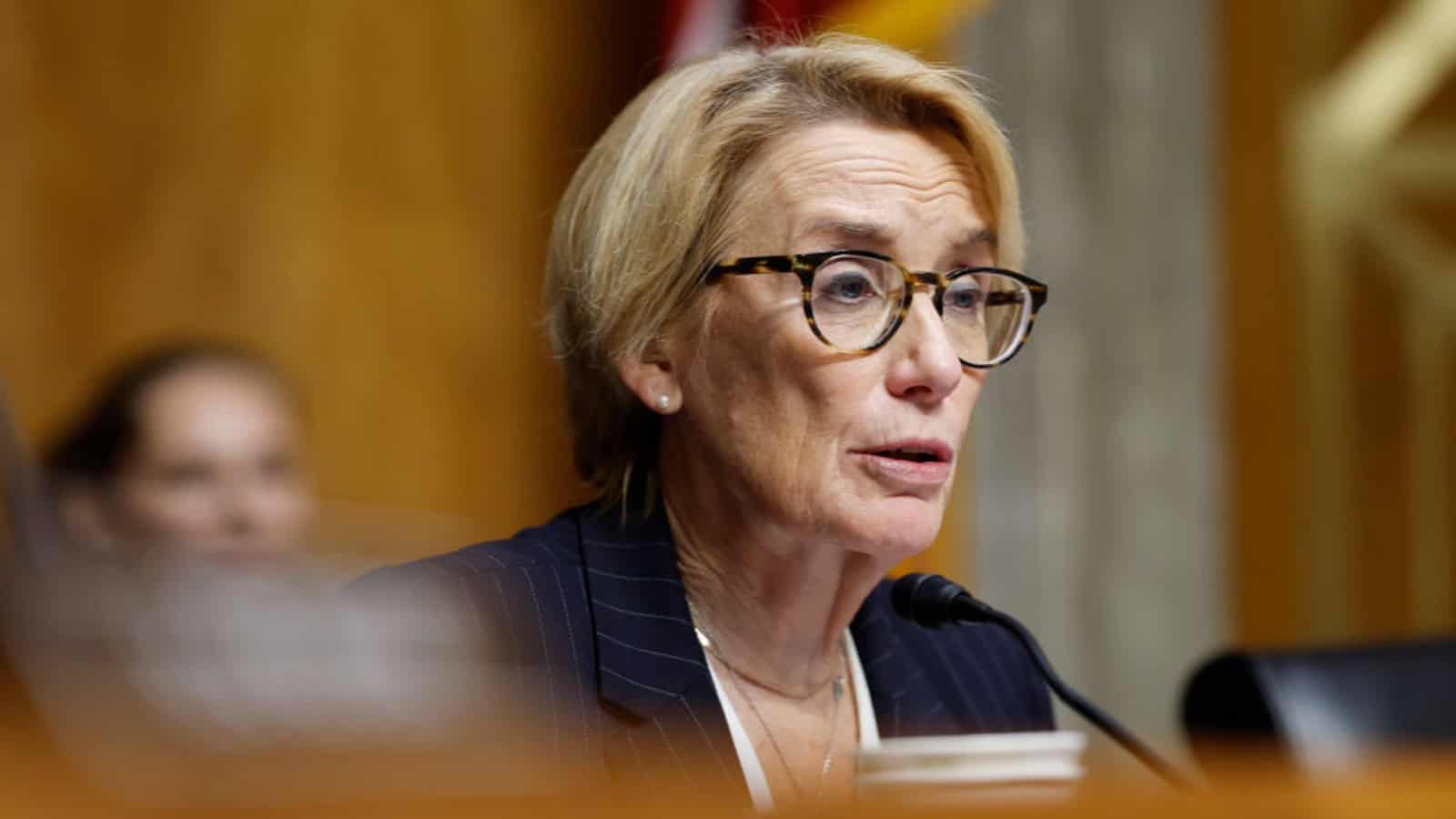
The NAM recently interviewed Sen. Maggie Hassan (D-NH) on the importance of reinstating immediate expensing for companies’ research-and-development expenditures. Here’s the full interview:
NAM: Sen. Hassan, Congress is facing a “Tax Armageddon” next year, as crucial provisions from 2017’s Tax Cuts and Jobs Act are set to expire. As a member of the Senate Finance Committee, what is your focus moving into next year’s debate?
Sen. Hassan: Next year, we will need to work to pass a tax cut package to support both American families and businesses. The package should build on the one that was negotiated in the Senate earlier this year, including a restoration of the full R&D tax deduction to support innovative businesses. The R&D tax deduction is an area where I have been particularly engaged in negotiations, and it is vital for our national security and economic competitiveness. We need to ensure that our tax policy fosters innovation, promotes the creation of good-paying jobs and keeps the United States at the forefront of technological advancement. We also need to prioritize a bipartisan expansion of the Child Tax Credit to support hardworking families and a bipartisan expansion of the Low-Income Housing Tax Credit to address our country’s housing shortage. I will continue to push for these critical measures throughout negotiations.
NAM: As you know, for nearly 70 years, manufacturers in the U.S. were able to fully deduct their R&D expenses in the year incurred. Beginning in 2022, however, manufacturers were forced to spread their deductions over several years, greatly harming our ability to grow and compete. What is Congress doing to restore immediate R&D expensing?
Sen. Hassan: I first introduced bipartisan legislation with Sen. Todd Young to restore the R&D deduction back in 2020, and we’ve been pushing for its passage since. The R&D tax deduction has wide bipartisan support—our measure supporting full R&D expensing passed 90–5 in the Senate in 2022. Recently, we had a bipartisan tax cut package that included the R&D tax deduction’s restoration, but unfortunately, it was blocked in the Senate, despite passing the House with an overwhelmingly bipartisan 357–70 vote. It’s disappointing and frustrating.
NAM: During your time as senator, you have seen how impactful R&D is for manufacturers to be able to compete on a global level. As we get closer to next year, what are you hearing from stakeholders on the need for pro-growth tax policy so American businesses can engage and grow around the world?
Sen. Hassan: The message I’m getting is clear—we can’t afford to fall behind in the global R&D race; it’s about American competitiveness and national security. Countries like China are offering massive incentives, including a 200% super-deduction for R&D. That puts American businesses at a real disadvantage, and I’m already hearing from business leaders across New Hampshire about how the expiration of the tax deduction is impacting their ability to plan for and make the investments that drive our economy forward.
There’s a critical national security component here too. We need to be at the forefront of designing, implementing and controlling new technologies, including those used for our national defense.
NAM: Thank you, Sen. Hassan. What else can NAM members do to stay engaged and be a resource for you going into next year?
Sen. Hassan: Your advocacy is crucial. I encourage NAM members to keep speaking up about the ways in which R&D and tax policy specifically impacts your businesses and communities, as well as the need for bipartisan compromise. Doing so is invaluable in shaping effective legislation and getting it across the finish line.
Sen. Hassan: We Need Immediate R&D Expensing
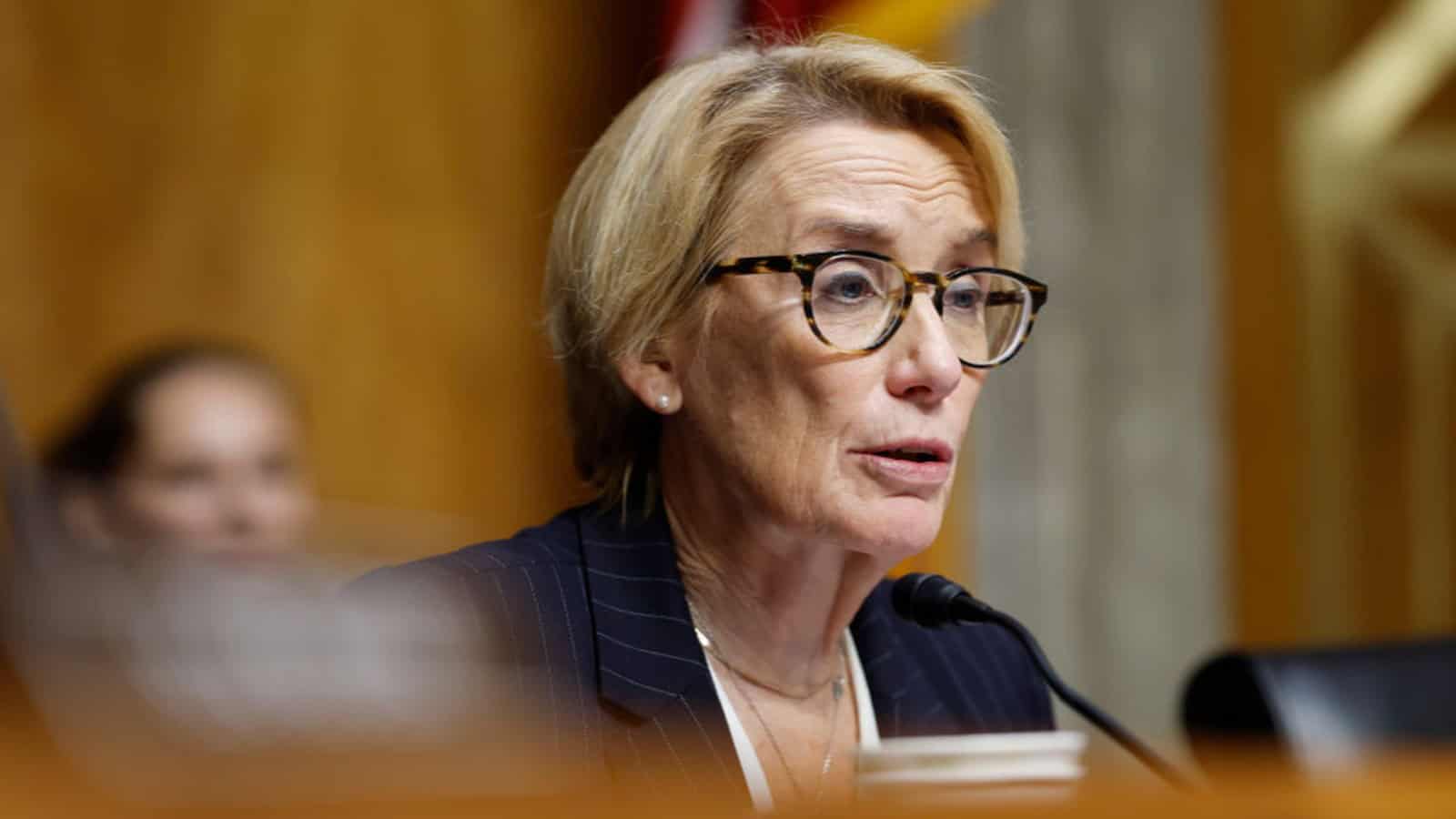
With a “Tax Armageddon” looming at the end of 2025, Sen. Maggie Hassan (D-NH) is gearing up to fight for manufacturers. Sen. Hassan, who introduced the bipartisan American Innovation and Jobs Act (S. 866) with Sen. Todd Young (R-IN) in 2020 and reintroduced it last year, understands the importance of restoring expired manufacturing-critical tax provisions.
What’s going on: One of Sen. Hassan’s top priorities for 2025 is reinstating immediate expensing for companies’ research and development costs.
- For nearly seven decades, manufacturers could fully deduct R&D spending in the year those expenses were incurred. But since immediate R&D expensing was allowed to expire in 2022, manufacturers have been required to amortize R&D expenses over a period of years instead.
- “The R&D tax deduction … is vital for our national security and economic competitiveness,” Sen. Hassan told us in a recent interview for the NAM’s “Manufacturing Wins” campaign, adding that she has “been particularly engaged in negotiations” on the topic. “We need to ensure that our tax policy fosters innovation, promotes the creation of [well]-paying jobs and keeps the United States at the forefront of technological advancement.”
Why it’s important: “The message I’m getting [from manufacturers] is clear: We can’t afford to fall behind in the global R&D race,” Sen. Hassan continued. “It’s about American competitiveness and national security. Countries like China are offering massive incentives, including a 200% super-deduction for R&D. That puts American businesses at a real disadvantage.”
What she’ll be doing: Though a bipartisan tax cut package that included a restored R&D tax deduction passed in the House earlier this year, the legislation stalled in the Senate. That’s only made Sen. Hassan vow to redouble her efforts in 2025.
- “[L]ooking ahead, I’m committed to working across the aisle to get this done because it’s crucial for our manufacturers, our economy and our national security,” she said.
What you can do: Manufacturer input and engagement are vital as Congress considers tax legislation next year, Sen. Hassan emphasized.
- “I encourage [manufacturers] to keep speaking up about the ways in which R&D and tax policy specifically impacts your businesses and communities, as well as the need for bipartisan compromise. Doing so is invaluable in shaping effective legislation and getting it across the finish line.”
Read the full interview here.
Small Manufacturers to Congress: Restore a Pro-Growth Interest Deductibility Standard
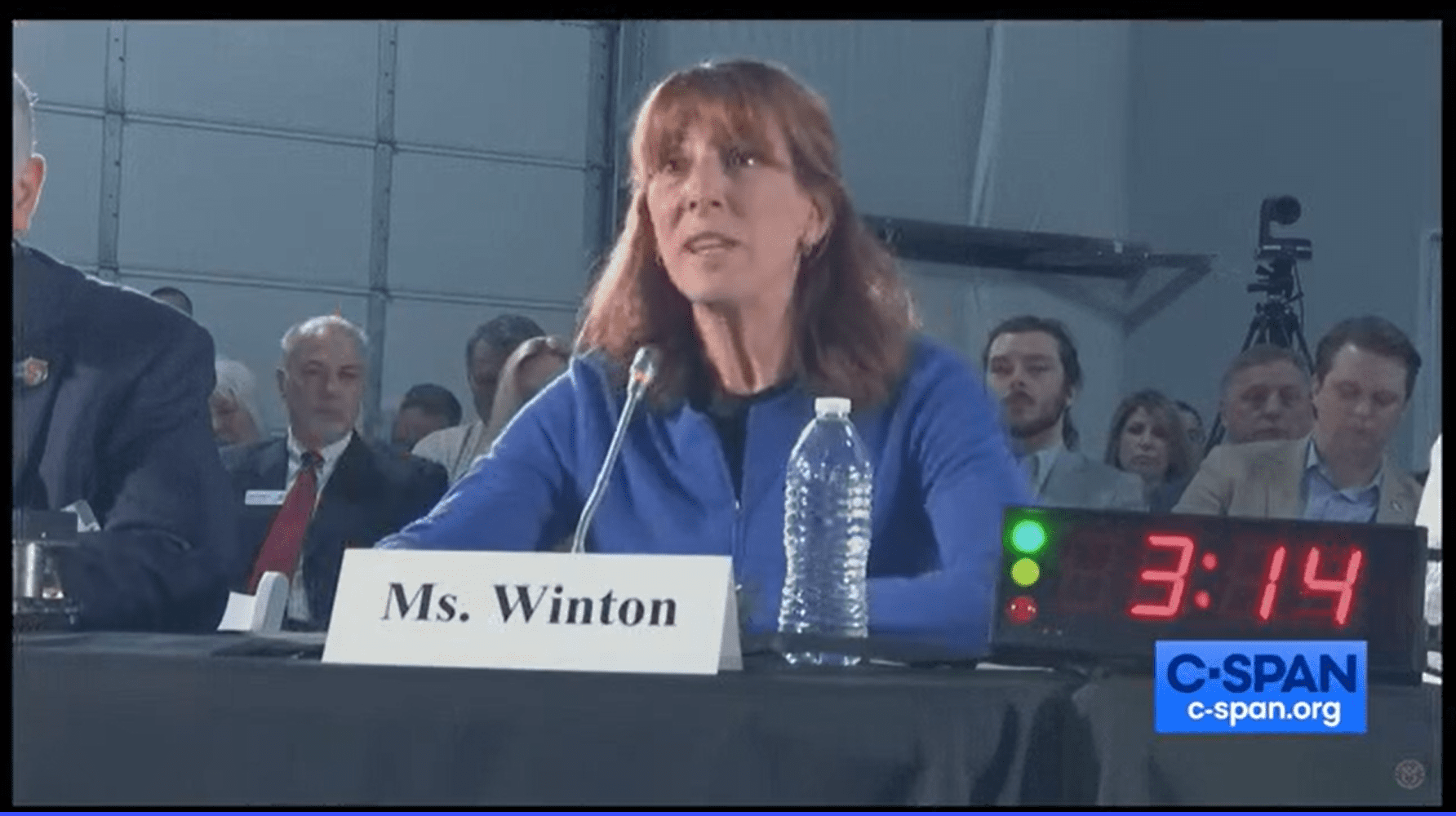
As part of the NAM’s “Manufacturing Wins” tax campaign, small and medium-sized manufacturers are urging Congress to reinstate the pro-growth interest deductibility standard implemented by the 2017 Tax Cuts and Jobs Act—which was crucial to making debt financing for capital equipment purchases more affordable for manufacturers.
What’s happening: Tax reform allowed companies to deduct the interest they pay on business loans, up to a cap of 30% of their earnings before interest, tax, depreciation and amortization (EBITDA).
- But as of 2022, companies can only deduct interest up to 30% of their earnings before interest and tax (EBIT). This stricter limit raises borrowing costs for manufacturers, making it harder for them to finance job-creating investments in equipment and machinery.
Why it matters: Ankeny, Iowa–headquartered manufacturer Accumold was able to hire the talent it needed because of tax reform’s incentives for capital investment, including the EBITDA-based business interest limitation. “Thanks to tax reform, Accumold was able to increase our capital investment and add to our teams,” said President and CEO Roger Hargens.
- “By excluding depreciation and amortization expenses from the interest deduction calculation, the EBIT standard makes debt financing more expensive—punishing manufacturers with significant investments in depreciable assets like equipment and machinery, as well as valuable intellectual property subject to amortization,” explained Sukup Manufacturing President and CEO Steve Sukup, whose company is based in Sheffield, Iowa.
Supply chain implications: The change has had far-reaching effects on supply chains across the country, hitting small manufacturers—such as Pennsylvania-based Erie Molded Packaging—hard.
- “The majority of my customers buy and sell large pieces of capital equipment that require debt financing,” President Tom Tredway said. “Their inability to deduct interest makes borrowing more expensive, impacting small manufacturers’ economic health and ability to grow. Policy changes cause ripple effects across every level of the supply chain, and small manufacturers often take the biggest hit.”
- Added Sukup: “This change has been damaging to Sukup’s supply chain, as our partners at all levels often use debt financing for investments, including purchasing our products.”
- BTE Technologies President Chuck Wetherington and NAM Executive Committee Member in Hanover, Maryland, agreed. “Many of our suppliers utilize debt financing to expand their operations and invest in growth, yet their ability to do so is limited by the more-restrictive interest deductibility standard,” he said. “Ultimately, this switch to an EBIT standard weakens the manufacturing supply chain.”
Innovation at stake: Simmons Knife & Saw in Glendale Heights, Illinois, has seen a dramatic increase in its tax bill since pro-growth tax policies began to expire in 2022, including the EBITDA-based interest limitation.
- “We sell to over 100 countries and face competition around the globe,” said President and Owner Colin Murphy. “To remain competitive, we need to continually innovate and consistently invest in new machinery and equipment.”
- He added that the company’s higher tax bill “has led to less investment in equipment, fewer jobs and less innovation.”
The bottom line: “Increasing the cost of debt financing makes it more costly for manufacturers to invest in growth and expansion,” said Sukup. “Policymakers should not impose limitations that inhibit manufacturers’ ability to finance investments.”
- Added Hargens: “I urge Congress to prioritize the future of our working families and our economy by preventing tax increases.”
Q&A: Rep. Smith on Averting “Tax Armageddon”
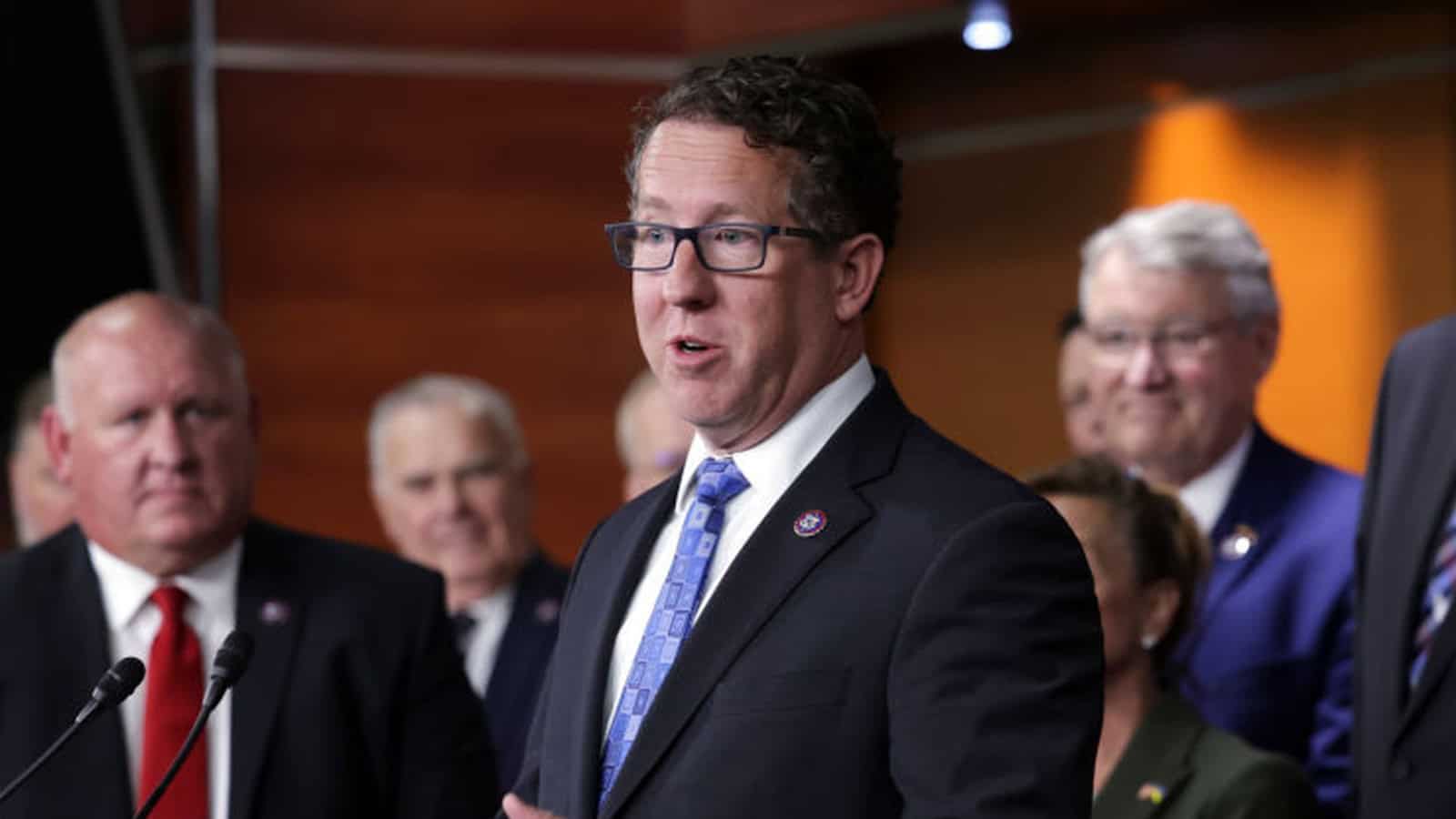
The NAM recently interviewed Rep. Adrian Smith (R-NE) about the actions that he and congressional colleagues are taking to fight a looming “Tax Armageddon.” The full text is below.
NAM: Rep. Smith, Congress is facing a “Tax Armageddon” next year, as crucial provisions from 2017’s Tax Cuts and Jobs Act are set to expire. As a member of the House Ways and Means Committee, what is your focus moving into next year’s debate?
Smith: The 2017 cuts unleashed economic growth, promoted American business investment and benefitted workers more meaningfully than any policy reforms in a generation. Leading the Ways and Means Rural America Tax Team and as a member of the Main Street Tax Team, I am working hard to gather input from stakeholders, job creators and drivers of our nation’s growth potential. Manufacturing is an overlooked component of rural economies, and Americans know tax policy must encourage investment in their communities.
NAM: As you know, prior to 2022, businesses could deduct 30% of earnings before interest, tax, depreciation and amortization—a deduction standard known as EBITDA. A change in the tax code limits the deduction to only EBIT—excluding depreciation and amortization. This presents an added cost for businesses taking out loans to finance large capital investments in their facilities and equipment and disproportionately impacts the manufacturing sector. What are you doing to correct this policy?
Smith: American manufacturers are already suffering under inflation, a worker shortage and a sustained high-interest environment in the United States. Bipartisan legislation I have introduced, the AIM Act, would amend the U.S. tax code to increase the cap on deductible business interest to pre-2022 levels. By ensuring capital-intensive industries can deduct more of the cost of interest from their taxes, we can enhance opportunities to develop new products in America, create jobs by making those products here and then sell those products around the world.
NAM: Congressman, you were on the Ways and Means Committee during passage of the TCJA in 2017, so you know how impactful the legislation was for manufacturers to be able to compete on a global level. As we get closer to next year, what are you hearing from stakeholders on the need for pro-growth tax policy so American businesses can engage and grow around the world?
Smith: Ensuring our tax code reflects the cost of doing business is essential for American manufacturing to compete in the global market. Prior to 2017, even President Obama realized our tax code was making American businesses less competitive. The fact there have been no major corporate inversions since passage of the TCJA is a remarkable testament to commonsense policy. Businesses we have heard from widely agree on the importance of keeping these policies in place and sustaining our strong growth.
NAM: Thank you, Rep. Smith. What else can NAM members do to stay engaged and be a resource for you going into next year?
Rep. Smith: Contacting my office with your feedback and how you have been impacted by the TCJA is always welcome. Continue to share stories about why growth-centered tax policies are key to your success and how you would change course should they expire. Together, we can maximize productivity and growth through a tax code that is a net benefit to all.
Rep. Smith on Averting “Tax Armageddon”

Rep. Adrian Smith (R-NE) is fighting a looming “Tax Armageddon”—the expiration of crucial pro-manufacturing tax measures scheduled for the end of 2025. As part of its “Manufacturing Wins” campaign, the NAM recently chatted with Rep. Smith—chair of the House Ways and Means Committee’s Rural America Tax Team and a member of the committee’s Main Street Tax Team—about how he and his colleagues are working to avert the potential disaster.
Interest deductibility: One of Rep. Smith’s priorities is restoring a pro-growth standard for interest deductibility. In 2022, a new limitation took effect, setting a stricter cap on how much interest manufacturers can deduct, and thereby increasing the cost of debt financing job-creating investments.
- “Bipartisan legislation I have introduced—the American Investment in Manufacturing Act—would amend the U.S. tax code to increase the cap on deductible business interest to pre-2022 levels,” Rep. Smith told the NAM.
- “By ensuring capital-intensive industries can deduct more of the cost of interest from their taxes, we can enhance opportunities to develop new products in America, create jobs by making those products here and then sell those products around the world.”
Preserving tax reform: By restoring tax reform’s lapsed provisions—including interest deductibility—and preserving policies scheduled to expire next year, Congress can build on the success of the Tax Cuts and Jobs Act, which “unleashed economic growth, promoted American business investment and benefitted workers,” Rep. Smith said.
- “Businesses we have heard from widely agree on the importance of keeping these policies in place and sustaining our strong growth.”
